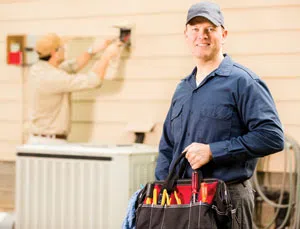Don’t let your training and education program fall through the cracks.
When I first became involved in training, I assumed training was just a given and that a person would undertake training of some sort to improve themselves on a regular basis.
After all, this was what I had been taught and been exposed to as I went through my career.
The reality was a little different. I found that we often want and plan to support training only to have it fall through the cracks as more pressing issues pull our attention and resources elsewhere.
Training is not something that can just be done on a whim and hope that all will magically be better.
So, if training is not done and our businesses run regardless, is it even worth it to make the effort to train our employees — and ourselves, for that matter?
Career Development
This could include picking up new skills beyond what is necessary to do the current tasks that one is required to do in their position so they can take on new tasks, move into a new position all together or cover for somebody who is out sick or injured.
To answer the question posed earlier, we need to look at what is important to our businesses that training will return a good investment on.
The key among them is employee skills flexibility, loyalty and reduced warranty costs. To this list you could also add improved brand recognition, reputation and referrals.
Obviously, getting the right employees to start with is the biggest step and often the most challenging. When sitting on technical committees with HVACR business owners, this is often the first thing that comes up.
To get the best employees, you need to offer something that would make them want to work for you as opposed to somebody else, and on-the-job training is listed right at the top of the pile.
As well, since technical schools are not graduating enough people to fill in the skilled labor gap, I have also noticed several business owners have started recruiting new workers straight out of high school.
Since some of these schools have HVACR courses in their program, students coming out of these schools who have shown they can work at a place like McDonald’s for a year or two, show up for work on time and do what is required of them and even more, often make great employees when trained in the additional technical skills required.
Investment
I sometimes hear from HVACR business owners, “What happens to my investment in training my employees and they leave for another employer?” I think people have this backwards.
If you’re lucky enough to get a person with the right work attitude and they show some aptitude for the job, you’re mistaken if you do not invest in them.
And, if they leave, why did they decide to forsake you and go to somebody else? I’d want to find out and correct as soon as possible, as keeping good employees is the number one thing a business should strive for — because, without them, you will never be as successful as you would like.
Flexibility
Getting back to the reasons to train, let’s start with employee flexibility. Since good technicians are worth their weight in gold, increasing their capabilities into other applicable areas allows you to do more with them and pick up opportunities that might otherwise go to somebody else.
If a good opportunity comes along but you only have one or two technicians with the skills to do it, what happens if they are already deep in another job? Pull them out and have somebody else start halfway through?
If others also have the necessary skills, it will be a lot easier to find somebody to take on the new opportunity and do it before your competitors can step in.
If somebody is on vacation, injured or sick, the remaining folks can fill in for them with no back up of work or missed opportunities.
On top of this, you can advertise that your techs are certified and have all the skills necessary to do what is required of them, which is something I think we can all agree is important.
Return on Investment
Touching on loyalty, I have already pointed out that on-the-job training is right up there on the list of desirable offerings from a potential employer.
It’s also important to remember the law of supply and demand.
Currently and for the near future, those with the skills are in short supply, which means that demand far outstrips supply.
Getting employees with good work ethics and potential abilities and developing them is probably the best answer to this shortage.
The training investment is lower than the alternative, which is to hire a highly-skilled person who has just about every company recruiting them and who you will pay dearly for — only to have them leave in six months to somebody with deeper pockets.
The potential downside is time required for the return on investment. It takes months, if not years, to fully develop the skills required, so these employees will not be jumping in a truck by themselves and troubleshooting large refrigeration systems in a few months unless they already have the required skills to start.
Of course, you won’t be paying them the high wages highly-skilled people receive, either.
Since training is highly desired, if they are getting trained and see the value in it, you will have loyal employees.
Even highly-skilled people are the way they are because they have put in the effort to become that way, and so will regard training offered to them that will enrich their skills as desirable and something of value.
Soft Skills
Reduced warranty costs, call backs and generally unpleasant experiences with customers are some key areas proper training can help alleviate.
And, by training, I am also referring to the “soft skills” that can help a business gain an advantage in a competitive market.
Soft skills are sometimes dismissed as frivolous, to put it mildly, but every successful HVACR business I can recall has some form of soft skill development program in place.
It should not be a surprise since people’s perception of somebody coming into their home or place of work is first predicated on how they perceive the person (and, by extension, your business).
Their actions — from the minute they step in the door and the first words out of their mouth — will immediately make an impression.
If you want to sell preventive maintenance programs, look no further than the importance of a positive first impression — because, if people perceive value in having your company visit their home, they will see value in having you come back.
Mentoring
Technical training to do the job correctly can consist of mentoring a junior tech by one more senior.
This can be done one day a week where the junior tech takes a break from the work they can do and learns how to do work they currently do not have the skills to do by first observing and then doing with the coaching of a supportive and encouraging senior tech.
This will give them the confidence to do it on their own.
Sure, there will be a cost associated with this, but you will save down the road on reduced costs associated with poor work, as well as expand the capabilities of your staff.
Improved brand recognition, reputation and referrals will follow naturally. People can understand the basic concepts of how a system works, and if time is taken to describe how and why something is being done, it will make sense to them and they will trust you far more as a result.
If your technicians can’t describe in terms a non-expert would understand of how a system works and what is important to make and keep it working well, then they cannot effectively communicate with people who will make the decision to call you the next time or recommend to a friend to call you when they are looking to buy or service a system.
Of course, training cannot fix everything, and shortcomings from something other than skills will likely require another solution.
Taking time and discussing opportunities for training development with your employees and what you desire from them as a result will help you work together to build the workforce you desire and that will result in the most return.
*Originally published August 2018
Jamie Kitchen is an account manager for Danfoss. He previously was the training manager for Danfoss in North America. Jamie has worked in several positions around the world to develop an expertise on the various considerations each region requires to achieve its air treatment needs — whether through refrigeration, air conditioning, heating or humidification. For additional information, visit danfoss.us.





